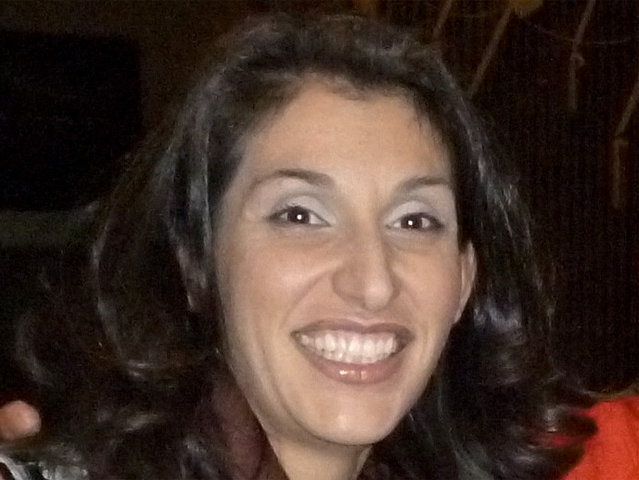I can't honestly say I didn't see it coming.
In fact, when we learned at our school that MPS would trim funding for K3 by about a third for the upcoming year, some parents – including me – even discussed whether or not it was possible to ask families who could afford to pay for 3-year-old kindergarten to do so.
The state does not fund K3 education, meaning it is entirely board-funded in Milwaukee. However, the board now funds just under 75 percent and schools must make up the rest themselves.
This was in January, before the governor's budget proposal was announced. Among the changes made to the district budget after the grim news emerged from Madison was a proposed cut to busing for regular education K3 and K4 students.
That idea was met with resistance from families, teachers and board members. However, it is illegal for MPS to charge for transportation. So the idea of a fee for the bus, based on ability to pay, was quickly quashed.
During the discussion of these issues in May, the Board of School Directors Strategic Planning and Budget committee instead took a different approach and discussed the idea of a fee for K3 on a sliding scale, based on the ability to pay.
I shouldn't have been surprised, and yet I was.
Most board members and Superintendent Thornton have spoken on the record about their support for and the importance of early education. And anyone paying attention knew that Dr. Thornton was working behind the scenes to try and find ways to avoid even that initial 30 percent cut to K3 funding.
I should make it clear that the fee was not a done deal as it was worded in the amendment. That amendment stated that money for K3 and K4 transportation would be reinstated and that the superintendent would investigate a fee. But it sure sounded like the fee was coming and that it was only the amount that needed investigating.
I'll say here that I might be willing to pay a fee, which likely would be nothing like what I pay for day care and I know from experience that kids learn a lot in K3. It is definitely NOT day care. My child is reading and writing at a level at least a year, maybe two, ahead of where I was at the same age. And it is clearly due to the work he did in K3 and K4.
There are, however, two things that concern me.
First – and Dr. Thornton and a number of board members made this point, too, at that committee meeting – fees can be a slippery slope. You institute one fee and it becomes easier to justify a few more and on and on and on.
In a district in which 80 percent of kids are in poverty, this is untenable. Will poorer families be stressed about the fees and be scared away from early childhood education? Will families that can afford the fees get the sense they're subsidizing everyone else and leave the district?
Since K3 education is not universal in the district, I could understand the argument that the folks who use it should help fund it (beyond our funding of it already via our taxes).
By the same token, though, not everyone uses special education resources, attends a specialty school like a language immersion or gets an IB diploma, either. Should those families pay more? And so goes the slippery slope of fee-dom...
Second, I'm a little uneasy about the idea of imposing a fee on one thing to pay for something else. The discussion at that committee meeting was plain. We can't charge and say it's for transportation, but we can charge for K3 and not say that it's for transportation.
The morning after that meeting, I chatted with the school board's Meagan Holman, who assured me I had misunderstood – though others, including an MPS administrator told me they'd heard exactly what I had. The main point, she assured me, was that transportation was back.
Of course, like her, I celebrate that fact. Because while I don't agree that driving kids around town is the best use of money or time, the K3 programs are often at specialty schools like the Montessoris or early education schools like 68th Street and Starms. Remove the transportation option and you deny those opportunities to kids who don't live nearby.
In a city like Milwaukee, to deny access to transportation is to support segregated schools.
When the budget passed on Tuesday night, the amendment passed, too, and K3 fees on a sliding scale became, if not a done deal, then at the very least, a distinct possibility.
I wasn't at the meeting, but someone who was there told me that Dr. Thornton said that if unexpected money should come from the state, it would go first to fund SAGE class size reduction efforts and then to eliminate K3 fees.
So, I went back to Holman and asked, in an email, what's up...
"When we passed that amendment, after lengthy debate, as a body we added that there be some funding source (for transportation), developed by the administration," Holman responded, talking about the earlier committee meeting.
"Since that time, we have learned from the budget staff that to even come close to bridging this gap, the families of just 250 K3 students, which is what remains of those not participating in FRPL (Free and Reduced Price Lunch) program, would be called upon to provide significant personal contributions far beyond what I believe any of us intended at the time of our deliberations."
Holman made a motion to change the wording of the amendment to read that the administration "may" impose a fee. She also said that the idea of a fee, at least for the moment, seems dead for a number of reasons.
"Taken with the fact that, to my knowledge, we don't have an opinion from the city attorney as to whether charging a fee would be legal, that K3 students who could not afford the fee would not be able to find alternate preschool seats at this point in the calendar year, and that no mechanism for collecting the fee or maintaining billing records without additional personnel or staff time has been developed, I hope that the administration will study this and come back to us with a plan."
From what I hear on Vliet Street, there is no desire to institute a fee for early education, and so, on the surface of it, at least, it looks as if Holman is right that the issue seems dead at the moment.
It's unfortunate that this discussion even has to take place and I credit the board and the administration for not taking the discussion lightly. I do, however, encourage them to continue to tread with caution into the treacherous mountain region of Fee-land.
Born in Brooklyn, N.Y., where he lived until he was 17, Bobby received his BA-Mass Communications from UWM in 1989 and has lived in Walker's Point, Bay View, Enderis Park, South Milwaukee and on the East Side.
He has published three non-fiction books in Italy – including one about an event in Milwaukee history, which was published in the U.S. in autumn 2010. Four more books, all about Milwaukee, have been published by The History Press.
With his most recent band, The Yell Leaders, Bobby released four LPs and had a songs featured in episodes of TV's "Party of Five" and "Dawson's Creek," and films in Japan, South America and the U.S. The Yell Leaders were named the best unsigned band in their region by VH-1 as part of its Rock Across America 1998 Tour. Most recently, the band contributed tracks to a UK vinyl/CD tribute to the Redskins and collaborated on a track with Italian novelist Enrico Remmert.
He's produced three installments of the "OMCD" series of local music compilations for OnMilwaukee.com and in 2007 produced a CD of Italian music and poetry.
In 2005, he was awarded the City of Asti's (Italy) Journalism Prize for his work focusing on that area. He has also won awards from the Milwaukee Press Club.
He has be heard on 88Nine Radio Milwaukee talking about his "Urban Spelunking" series of stories, in that station's most popular podcast.







